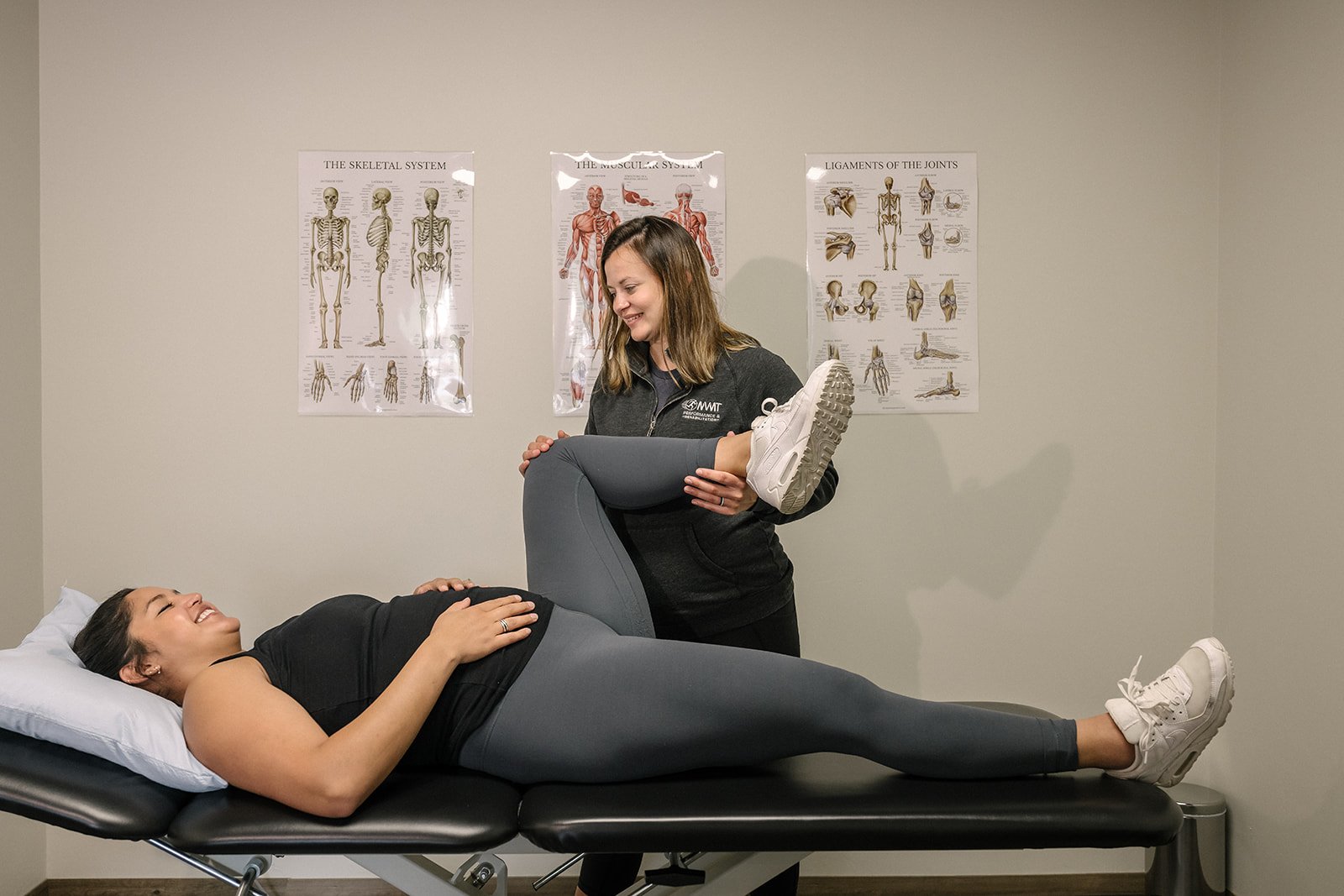Green Bay Physical Therapists: Essential Postpartum Pelvic Floor Therapy for Optimal Recovery and Wellness
Physical therapy is a vital component of postpartum recovery, especially when it comes to addressing the pelvic floor. The pelvic floor muscles undergo significant strain during pregnancy and childbirth, leading to various issues such as urinary incontinence, pelvic pain, and even organ prolapse.
For new mothers in Green Bay, postpartum pelvic floor physical therapy at MVMT Performance and Rehabilitation offers a pathway to regain strength, improve health, and enhance overall well-being. Understanding the importance of pelvic floor health and the role of specialized therapy can make a significant difference in your postpartum recovery journey.
Understanding the Pelvic Floor
The pelvic floor comprises a group of muscles and connective tissues that play a critical role in supporting the bladder, uterus, and rectum. During pregnancy, these muscles stretch and weaken due to the growing baby and the stresses of labor.
Postpartum, many women experience discomfort and dysfunction in this area, which can severely impact their quality of life. Issues like urinary incontinence, pelvic pain, and even organ prolapse are common but can be effectively managed and treated through targeted physical therapy. Addressing these problems early on through specialized care is essential for a successful recovery and for preventing long-term complications.
The Role of Postpartum Pelvic Floor Physical Therapy and How our Green Bay Physical Therapists can Help
Green Bay Postpartum pelvic floor physical therapy focuses on rehabilitating and strengthening the muscles that have been weakened or damaged during pregnancy and childbirth. At MVMT Performance and Rehabilitation, we offer personalized care tailored to each woman's unique needs.
Our Green Bay physical therapists provide a comprehensive approach that includes exercises to restore muscle strength, improve bladder control, and reduce pain. Additionally, we emphasize the importance of proper body mechanics and posture to prevent further strain on the pelvic area.
By addressing these issues, we help new mothers regain their confidence and return to their daily activities without discomfort.
Benefits of Pelvic Floor Physical Therapy
Engaging in postpartum pelvic floor physical therapy can have a profound impact on a woman's recovery and long-term health. By strengthening the pelvic muscles, women can significantly improve bladder control, reducing or even eliminating urinary incontinence. Physical therapy also plays a crucial role in alleviating pain in the pelvic region, lower back, and hips, which are common areas of discomfort after childbirth.
By restoring pelvic floor function, women can enhance their overall quality of life, allowing them to engage in daily activities and exercise without fear of discomfort or embarrassment. The sooner therapy begins, the better the outcomes, but even those who start later can experience significant benefits.
When to Start Postpartum Pelvic Floor Physical Therapy
Timing is crucial when it comes to starting postpartum pelvic floor physical therapy. It is generally recommended that women begin therapy around six weeks postpartum, after receiving clearance from their healthcare provider. Early intervention can prevent long-term issues and promote faster recovery, but it’s important to note that it’s never too late to seek help.
Even if you didn’t start therapy immediately after childbirth, you can still benefit from pelvic floor physical therapy years later.
Whether you’re dealing with ongoing issues or simply want to ensure your long-term health, pelvic floor therapy offers valuable support at any stage of postpartum recovery.
How MVMT Performance and Rehabilitation Can Help
At MVMT Performance and Rehabilitation, we understand the intricacies of pelvic health and the unique challenges that new mothers face. Our team of experienced physical therapists is dedicated to providing comprehensive postpartum care that addresses both immediate concerns and long-term health. We work closely with each patient to develop a personalized treatment plan that meets their specific needs. Our Green Bay physical therapy clinic is equipped with the latest tools and techniques to ensure that you receive the best possible care. Whether you’re experiencing pelvic floor issues or simply want to regain your pre-pregnancy fitness, we are here to guide you every step of the way.
Also from our blog:
Comprehensive Guide to Postpartum and Pelvic Floor Physical Therapy in Green Bay
WHAT TO EXPECT FROM YOUR PELVIC FLOOR PHYSICAL THERAPY VISIT, POSTPARTUM
Postpartum pelvic floor physical therapy is an essential step for new mothers who want to restore their health and well-being after childbirth. By addressing the challenges that arise from weakened pelvic muscles, you can improve your quality of life and prevent future complications. At MVMT Performance and Rehabilitation in Green Bay, we are committed to helping you achieve a full recovery. If you’re experiencing pelvic floor issues or simply want to ensure your long-term health, our expert team is here to guide you every step of the way.
Ready to take the first step towards postpartum recovery?
Contact MVMT Performance and Rehabilitation, your trusted Green Bay physical therapists, to schedule an appointment today!
Frequently Asked Questions
What is postpartum pelvic floor physical therapy?
Postpartum pelvic floor physical therapy focuses on strengthening and rehabilitating the pelvic muscles after childbirth to prevent or manage issues like incontinence and pelvic pain.
When should I start pelvic floor physical therapy after childbirth?
You can typically start pelvic floor physical therapy around six weeks postpartum, after getting clearance from your healthcare provider.
What are the signs that I need pelvic floor therapy?
Signs include urinary incontinence, pelvic pain, and a feeling of heaviness in the pelvic area, which may indicate weakened pelvic floor muscles.
Can pelvic floor physical therapy help with lower back pain postpartum?
Yes, strengthening the pelvic floor can alleviate lower back pain, as these muscles play a key role in stabilizing the core and supporting the spine.
Is it ever too late to start pelvic floor therapy after childbirth?
No, it’s never too late. Women can benefit from pelvic floor therapy even years after childbirth.

